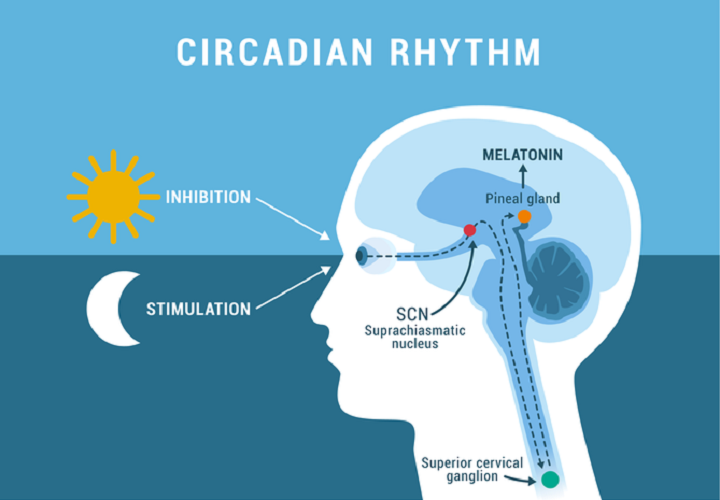Circadian Rhythm: See What Is It?
There's a sunrise and a sunset every day. We're hard-wired to react to the sun rise and set since that's how life on Earth has evolved over time. It's a 24-hour clock which is internal that's always on, responding to changes in our environment's natural lighting. The biological clock in the body helps to control numerous bodily functions, including:
Waking up in the morning;
Alertness; and
Hunger
Thermoregulation
The level of hypertension in the blood
Performance on a daily basis
Hormonal balance
Speed of reaction
Consult expert of sleep clinic without delay.
Disrupting the Circadian Rhythm: What Happens?
The biological clock in your body can be thrown off by a variety of external causes. Sunlight, certain medicines, and a diet high in caffeine can all interfere with a person's sleep cycle. Going to bed early is also harmful. The conventional 'daytime' business hours have all but disappeared thanks to the 24/7 information cycle and media connectedness culture that have developed in recent years. People who work long or irregular hours (more than 50 hours a week), shift workers, or have multiple jobs are more likely to experience sleep loss.
Artificial blue light from our TV, phone, and computer screens disrupts our circadian rhythm and disrupts our sleep pattern, making it even more difficult to maintain a regular sleep schedule and appropriate work/life balance. Every little bit adds up, and it will have a detrimental influence on our everyday lives, work output, and health in the long run.
5 Ways to Regain Control of Your Circadian Rhythm
Stay on Top of Your Nightly Bedtime Ritual
Even on the weekends, keep your bedtime the same every night. Establish a nightly wind-down regimen before going to bed to reset your biological clock. Take a warm bath, read a book, or listen to relaxing music or meditate for at least an hour before going to bed. Your brain and body will respond to environmental indications indicating it's time to sleep once you get into the habit of doing so.
Keep the Nights as Dark As Possible
Shut down all electronic devices at least an hour before going to bed. When you're awake, your circadian cycle is disrupted by blue light from electronics like TVs, computers, and cell phones. Drapes that block off light are another option.
Brighten up the Mornings
The biological clock in our bodies is triggered by light (or lack of it). Open the blinds in the morning and enjoy your coffee outside or go for a walk in the sunshine. Turn on the bright lights if you're inside.
Use a Sleeping Pill if Necessary
Using a sleeping pill is fine once in a while. Long-term reliance on them is not recommended. Melatonin, according to WebMD, can help with sleep issues including jet lag or working night shifts. In the evening, your body releases melatonin, a hormone. If your body's biological clock is out of sync, supplementing with melatonin may help.
Minimize Jet Lag by Planning Ahead of Time
To reduce jet lag, fly as close to your destination as possible the day before. Start moving your bedtime closer to the time you go to bed in your destination country within a few days of your travel. For every six hours you delay going to bedtime, you must also delay waking up time. Before you go for home, repeat the process.
Keep struggling to sleep for a long time? It's possible you've tried everything. Circadian rhythm disruption may be causing your sleep problem symptoms. Set up a consultation with a specialist of a sleep clinic to determine the source of your insomnia. Reach us at OKOA in Edmond, OK soon.
**Disclaimer: The information on this page is not intended to be a doctor's advice, nor does it create any form of patient-doctor relationship.

